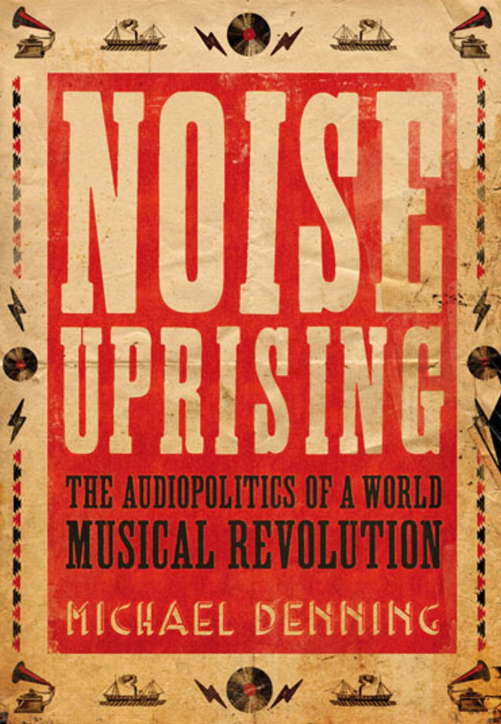Noise Uprising: The Audiopolitics of a World Musical Revolution
 As part of the Interference Archive’s if a song could be freedom… exhibition, join cultural historian and Verso author Michael Denning in a discussion of the politics of early recorded music, the subject of his new book, Noise Uprising: The Audiopolitics of a World Musical Revolution. What are the origins of the musical styles and idioms of recorded music? How did Havana’s son, Rio’s samba, New Orleans’ jazz, Buenos Aires’ tango, Seville’s flamenco, Cairo’s tarab, Johannesburg’s marabi, Jakarta’s kroncong and Honolulu’s hula reverberate around the globe? Why did hundreds of unknown musicians enter makeshift studios to record the melodies and rhythms of urban streets and dancehalls in the late 1920s and early 1930s? What were the politics of these shellac disks? How did they trigger the first great battle over popular music and become the soundtrack to decolonization?
As part of the Interference Archive’s if a song could be freedom… exhibition, join cultural historian and Verso author Michael Denning in a discussion of the politics of early recorded music, the subject of his new book, Noise Uprising: The Audiopolitics of a World Musical Revolution. What are the origins of the musical styles and idioms of recorded music? How did Havana’s son, Rio’s samba, New Orleans’ jazz, Buenos Aires’ tango, Seville’s flamenco, Cairo’s tarab, Johannesburg’s marabi, Jakarta’s kroncong and Honolulu’s hula reverberate around the globe? Why did hundreds of unknown musicians enter makeshift studios to record the melodies and rhythms of urban streets and dancehalls in the late 1920s and early 1930s? What were the politics of these shellac disks? How did they trigger the first great battle over popular music and become the soundtrack to decolonization?
Michael Denning teaches cultural studies at Yale University, and is the author of The Cultural Front: The Laboring of American Culture in the Twentieth Century and Culture in the Age of Three Worlds.
For more, see http://www.versobooks.com/books/1889-noise-upri
Interference Archive
131 8th St., #4
Brooklyn, NY 11215
